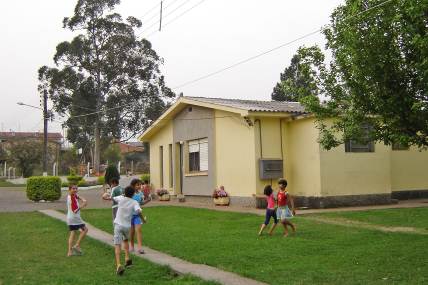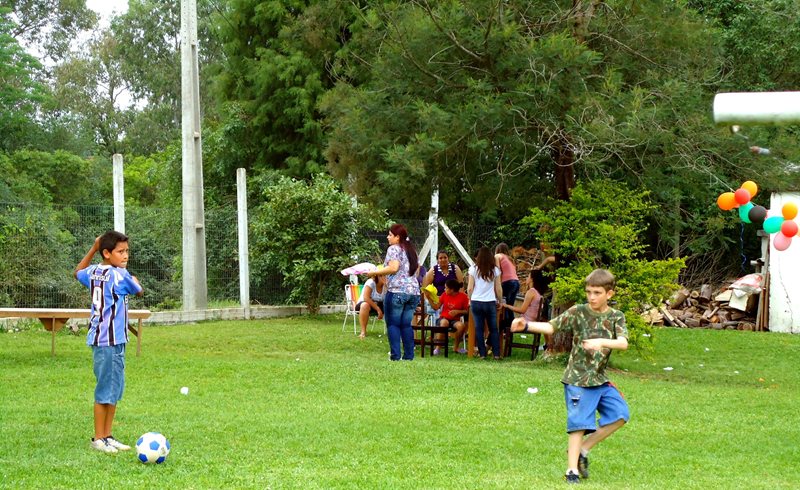Even in the more developed southern regions of Brazil, many families need support

SOS Children’s Village Santa Maria is located in the southern state of Rio Grande do Sul in the country's interior, west of Porto Alegre. Santa Maria has roughly 260,000 inhabitants and is an important city in the region in terms of commerce and education.
Rural poverty continues to be a problem in the country: even though it has been reduced from over 50 per cent in 1990 to just over ten per cent in 2008, this still leaves over 11 million rural poor. Subsistence farmers are finding it increasingly hard to make a living; the men therefore often migrate to the cities in search of work, leaving the women behind to care for the children and the land. This, in turn, leads to children having to work because mothers lack support.
While 19.6 per cent of the overall population of Rio Grande do Sul state live below the national line of poverty – the lowest rate in all of Brazil – the proportion of children affected is much higher, at 36.7 per cent.
Young mothers and children who have lost parental care need support
Over 430,000 children in the state benefit from the “Bolsa Familia” aid package, meaning that they come from low-income families where parents struggle to meet basic needs such as food or health care, where children are often made to work in order to contribute to the family income and their education is therefore severely endangered.
In 2006, 18.4 per cent of babies here in Rio Grande do Sul were born to teenage mothers. When these young girls come from a disadvantaged background, they may lack education and opportunities to generate income and are hence unable to provide for their child. Often, it is hard for single mothers to find work as they have no one to look after their children. Less than half of the children under the age of six attend some form of preschool or day-care.
What we do in Santa Maria

SOS Children’s Village Santa Maria in Rio Grande do Sul began its work in 1980.
Care in families: When children can no longer stay with their families of origin, they can find a loving home in SOS families. The SOS parents provide the children with a loving, stable and supportive environment. Some families live in houses integrated into the neighbourhood, and all children attend the local schools and this way they are part of the community.
While children are in our care, and wherever possible, we make sure they are in regular contact with their family of origin. When a child can go back to live with their family, we continue to support them.
Support for young people: Qualified counsellors support young people while they pursue further education or vocational training, some of which is delivered by SOS Children’s Villages. Young people learn to take responsibility, plan their future and prepare for independent adult life.